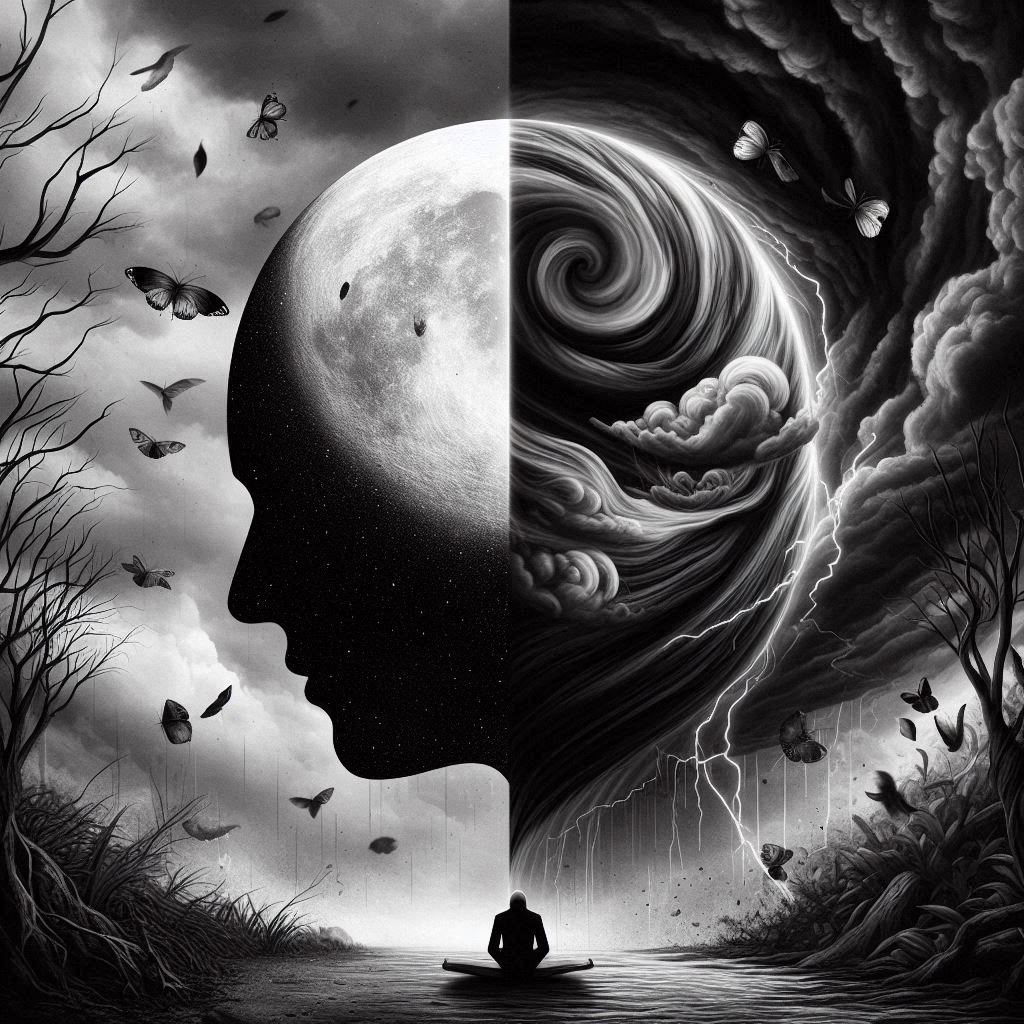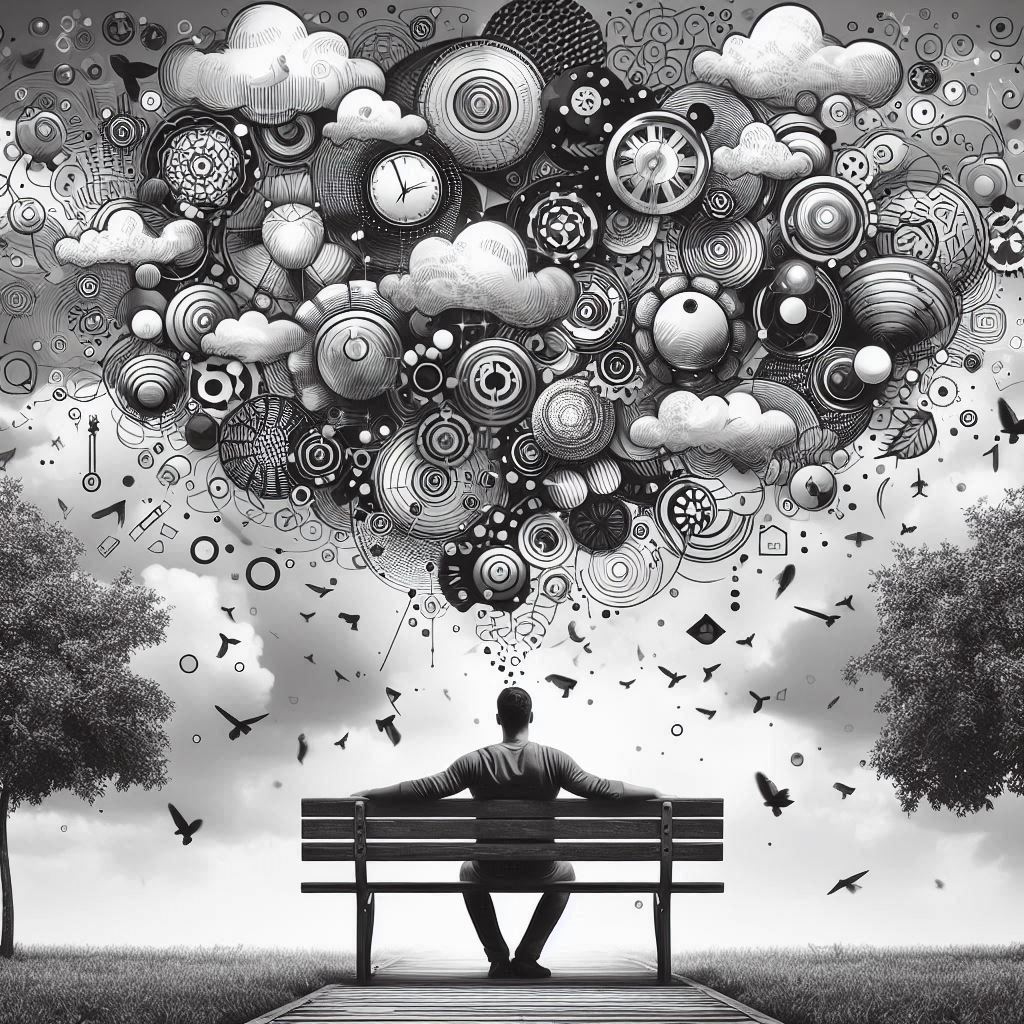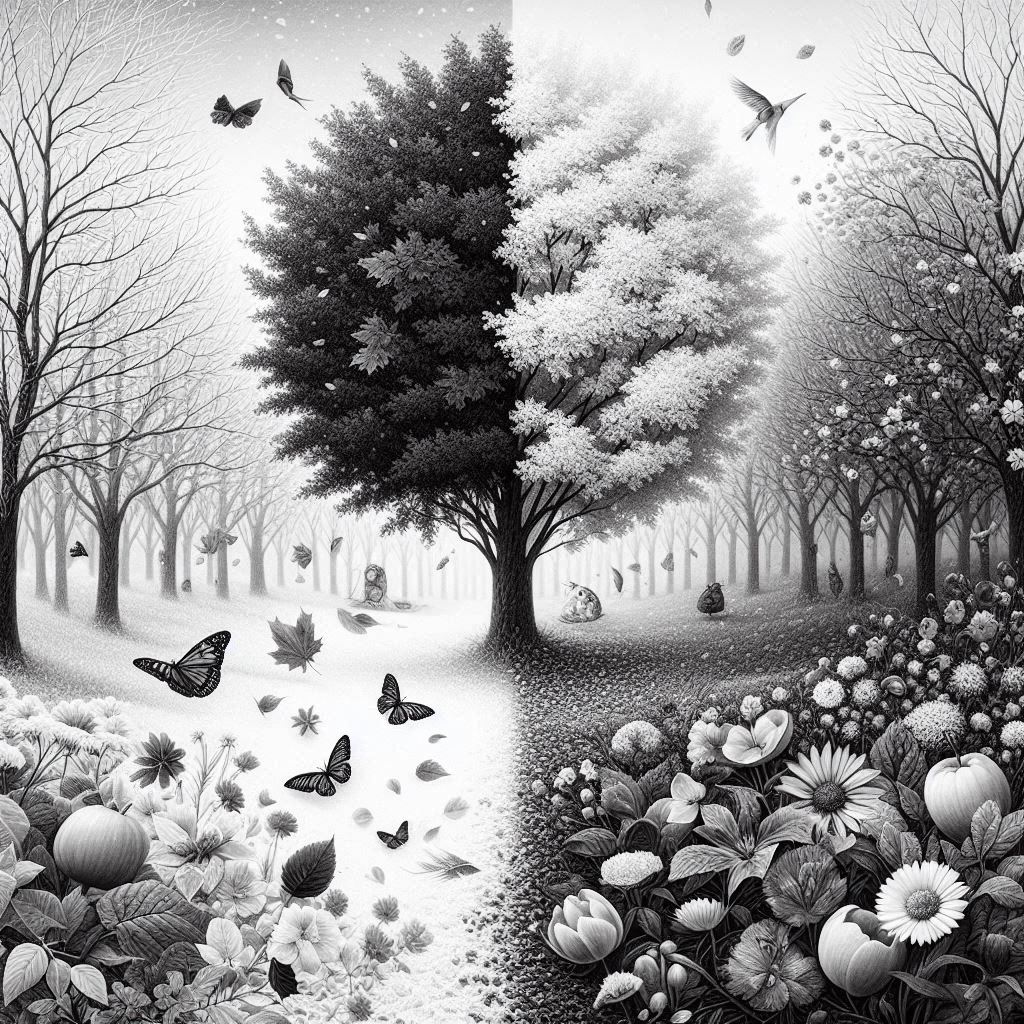Is anger eating away at you more often than you’d like to admit? If you’re nodding ‘yes,’ there’s a chance it might be more than just a bad mood. Anger can sometimes be a hidden sign of depression, a mental health condition often masked by irritability and outbursts. So, why is this important? Recognizing the link between anger and depression can be a game-changer for improving your mental well-being. Stay with us to explore how understanding this connection can lead to better management and even reclaiming your peace of mind.
The Connection Between Anger and Depression
Many people often think of depression as deep sadness and hopelessness, but anger can also play a surprising role. In fact, constant anger might be masking deeper emotional issues like depression. It’s a side of depression that’s less talked about but important to understand. This can be especially true for certain groups, like men, who may show depression through aggression rather than sadness. Let’s break down how anger manifests in depression and look at some key studies that highlight this complex relationship.
How Anger Manifests in Depression
When people think of depression, they usually picture someone feeling sad or hopeless. But anger is also a common symptom, especially among men. Why is this the case? Society teaches men that showing vulnerability is a sign of weakness. As a result, they may express their emotional pain through anger or irritability. Instead of crying, they might lash out. And it’s not just men; children and teens can also show depression through anger.
- Men and Anger: Men often feel pressured to hide their emotions. Instead of expressing sadness, they get angry. This might come out as irritability, frustration, or even aggression. They might blow up over small things, snap at loved ones, or feel a constant sense of agitation.
- Teens and Anger: Teens going through depression may not always show the typical signs like sadness. Instead, they might be angry or rebellious. They might fight with parents, get into trouble at school, or even argue with friends.
- The Hidden Feelings: Beneath the anger, there’s usually a lot of pain. These angry outbursts are often a way to cover up feelings of worthlessness, shame, or guilt that people with depression experience.
Scientific Studies and Findings
Research has shown a strong link between anger and depression. Understanding this connection can help people get the right treatment and support. Here are some key findings from various studies:
- Antidepressant Effects: A study from Dr. Maurizio Fava in 1998 found that treating depression with antidepressants also reduced anger attacks in about 53-71% of people. This highlights that anger can indeed be tied to depression.
- Emotion Regulation: A 2013 study suggested that people with depression often struggled with emotion regulation. This means they found it harder to manage their feelings of anger, leading to frequent outbursts or internalized anger.
- Serotonergic Dysfunction: Some research points to problems with serotonin, a brain chemical that affects mood, as causing both depression and anger. Low levels of serotonin might lead to both feelings of sadness and increased irritability.
- Hidden Anger in Depression: An article in Psychology Today from 2020 noted that people with depression often experience “anger attacks,” sudden episodes of intense anger. This can be a red flag and a prompt to look deeper at what’s going on emotionally.
Understanding these findings is crucial. It can open the door to better treatment options, from therapy to medication, to help manage both depression and anger. It also breaks down the stigma that men or anyone might feel in expressing these feelings, setting them on a course toward healthier mental well-being.
Why Anger Can Be a Sign of Depression
Imagine trying to carry a heavy backpack full of rocks every day. Over time, it would wear you down. This is how depression feels, and anger can be one of its burdens. Anger in depression isn’t just a fleeting emotion; it’s often a signal pointing to deeper issues. Let’s uncover why depression sometimes wears the mask of anger through both psychological and physiological lenses.
Psychological Reasons
Anger can be deeply rooted in unresolved trauma, stress, and emotional pain, all of which are often linked to depression. Here are some reasons why:
- Unresolved Trauma: Trauma from past experiences, like childhood abuse or witnessing something traumatic, can leave deep scars. These unresolved issues fester like an open wound, leading to spikes in anger. The brain recalls these events as threats, triggering a defensive response, often expressed through anger.
- High Stress Levels: Chronic stress boils like a pot over a flame. When stress isn’t managed, it can morph into frustration and irritability, common symptoms seen in depression. The body’s constant state of alert can make it quicker to anger.
- Emotional Pain: When feelings of worthlessness, guilt, or shame go unchecked, they can manifest as anger. It’s the body’s way of shielding you from overwhelming sadness. This angry front can seem easier to express than facing deeper emotional pain.
- Defense Mechanism: For some, anger is a protective shield. It’s easier to lash out than to admit you’re hurting inside. This can be particularly true for men raised with the idea that showing vulnerability is a weakness.
- Social Expectations: Societal norms often dictate how we should feel and express emotions. For men, there might be an underlying societal expectation to be tough, inadvertently pushing them to express depression through anger rather than tears.
Physiological Reasons
Beyond the mind, let’s zoom in on the brain and body. Certain chemical and hormonal imbalances linked to depression can cause anger. Here’s how:
- Hormonal Imbalances: Your body’s hormones play a vital role in regulating your mood. Imbalances in hormones like cortisol, often elevated in depressed individuals, can heighten stress responses, leading to anger and irritability.
- Chemical Imbalances in the Brain: Depression involves faults in the brain’s chemistry. Serotonin, a neurotransmitter that stabilizes mood, often runs low in those with depression. This shortage can result in increased irritability and anger. It’s akin to being hungry – when you’re low on serotonin, everything feels more frustrating.
- Medication Side Effects: Sometimes the medicine meant to treat depression can also have side effects like irritability and aggression. If not monitored, these side effects can contribute to the cycle of anger.
- Disrupted Sleep Patterns: Poor sleep is a common partner of depression. A lack of restorative sleep can lead to heightened stress and lower patience levels, causing anger to flare.
- Brain Structure Changes: Chronic depression can lead to changes in brain structure, particularly in areas controlling emotions and decision-making. This can impair one’s ability to regulate anger efficiently.
Understanding these psychological and physiological reasons is crucial. It highlights that anger in depression isn’t just about ‘bad behavior’; it’s a cry for help. Addressing the root causes can lead to better management of both depression and anger, ensuring a path to healing and peace.
Recognizing Anger as a Symptom of Depression
Anger can often be a key symptom of depression that’s overlooked. Many people associate depression with sadness, isolation, or a lack of energy. But the truth is, anger can be a strong indicator that someone is struggling with this mental health issue. Let’s explore the signs and guide you on when it might be time to seek professional help.
Common Signs to Look For
Recognizing the signs that anger might be linked to depression is an important first step in getting the right help. Here are some common indicators to keep an eye on:
- Irritability and Short Temper: If you find that small things easily set you off or you’re constantly snapping at others, it might be a sign of something deeper. People experiencing depression often have a shorter fuse and struggle to manage unexpected frustrations.
- Frequent Outbursts: Regular episodes of anger or unexpected outbursts at loved ones can signify underlying depression. These moments are more intense than the situation warrants and are often followed by feelings of regret or guilt.
- Persistent Anger: Unlike typical anger that fades away, anger associated with depression lingers. You might notice that you’re angry all the time, even when there’s no clear trigger.
- Physical Symptoms: Anger from depression can often come with physical symptoms such as an increased heart rate, muscle tension, and headaches. These symptoms are your body’s way of expressing distress.
- Withdrawal and Isolation: Depressed individuals may withdraw from social activities not just from feeling sad but because interacting with others can become an angry and exhausting ordeal.
- Self-Directed Anger: Internalizing anger, being overly critical of yourself, and experiencing feelings of worthlessness can also be signs of depression. This can manifest as self-harm or destructive behaviors.
When to Seek Professional Help
Identifying that your anger could be a sign of something more serious is crucial. But when should you consider professional help? Here’s a guide on when to seek out an expert:
- Persistent Symptoms: If you notice that the anger and associated symptoms persist for weeks or even months, it’s a strong signal to seek help. Depression isn’t something that just goes away on its own and addressing it early can prevent more severe consequences.
- Interference with Daily Life: When anger starts to impact your daily routine, relationships, work, or school performance, it’s time to reach out to a professional. Anger that disrupts your ability to function normally is a significant flag that shouldn’t be ignored.
- Aggressive or Violent Behavior: If your anger translates into aggression or violence, whether verbal or physical, seeking immediate help is crucial for your safety and the safety of those around you.
- Thoughts of Self-Harm: Any thoughts of self-harm or harming others should be addressed immediately. These are critical signs that professional intervention is necessary.
Types of Professionals Who Can Help
- Psychologists and Therapists: Trained to help with mental health issues, they can provide cognitive-behavioral therapy (CBT) to help you manage anger and depression. They’re equipped to offer you tools and strategies to handle emotions more effectively.
- Psychiatrists: If deemed necessary, psychiatrists can prescribe medications such as antidepressants, which can correct chemical imbalances that might be contributing to both the depression and anger.
- General Practitioners: They can provide initial assessments and referrals to specialists who are more equipped to handle your mental health needs.
Reaching out can be difficult and might seem overwhelming, but it’s a brave step towards reclaiming your well-being. Remember, acknowledging the problem is the first step to managing it effectively.
Personal Stories and Testimonials
Exploring personal stories and testimonials can provide a more nuanced understanding of how anger is connected to depression. Below, you’ll find real-life case studies and first-person accounts that shed light on the experiences of individuals who battled both anger and depression.
Case Studies
Real-life case studies provide an insightful look into the connection between anger and depression. Here are a few examples that illustrate how these emotions intertwine:
- Case Study: John’s Journey
- Background: John was a successful businessman who seemed to have it all. However, beneath his professional facade, John struggled with intense anger and irritability.
- Symptoms: Over time, John’s anger became more frequent and uncontrollable. He would lash out at his family and colleagues for minor issues.
- Diagnosis: After much reluctance, John sought help from a therapist who diagnosed him with depression. His anger was a symptom of underlying emotional pain and stress.
- Treatment: John’s treatment included cognitive-behavioral therapy (CBT) and antidepressants, which helped him manage both his anger and depression.
- Case Study: Lisa’s Lifelong Battle
- Background: Lisa, a stay-at-home mom, experienced persistent sadness and frequent outbursts of anger.
- Symptoms: Her anger was particularly directed at her children and husband, causing strain in her relationships.
- Diagnosis: After seeking professional help, Lisa was diagnosed with postpartum depression, with anger as a prominent symptom.
- Treatment: Therapy and a support group for postpartum mothers helped Lisa manage her emotions and improve her family dynamics.
- Case Study: Tom’s Adolescent Struggles
- Background: Tom was a teenager who exhibited rebellious behavior and frequent bouts of anger.
- Symptoms: His anger often got him into trouble at school and with friends.
- Diagnosis: With the help of a school counselor, Tom was diagnosed with depression. His anger was a way of expressing his overwhelming emotions.
- Treatment: Tom benefited from talk therapy and joined a teenage support group, which provided him with the tools to manage his anger and depression.
These case studies highlight how anger can be a prominent symptom of depression, affecting individuals from different backgrounds and life stages.
First-Person Accounts
Reading first-person accounts can offer valuable insights and foster empathy. Here are a few stories from individuals who have navigated the challenges of dealing with both anger and depression:
- Story: Emma’s Realization
- Emma writes, “For years, I thought I was just an angry person. Small things would set me off, and I would blow up at people I loved. It wasn’t until I read about the connection between anger and depression that I realized there was more to my anger. I sought help, and the diagnosis of depression explained so much. Through therapy, I’ve learned to manage my emotions better. It’s like a weight has been lifted off my shoulders.”
- Story: Jack’s Transformation
- Jack shares, “Growing up, I was always the kid with a short fuse. I got into fights and screamed at my family. It wasn’t until my mid-twenties that I learned my anger was a symptom of depression. I was resistant at first, but therapy opened my eyes. Understanding the roots of my anger made all the difference. It’s still a work in progress, but I’m kinder to myself now.”
- Story: Mia’s Reflective Journey
- Mia reflects, “Anger was my defense mechanism. It kept people at a distance so they wouldn’t see how much I was hurting inside. For years, I carried this anger around like a shield. But when I finally opened up to a therapist, it all started to make sense. My depression was expressing itself through anger. A combination of medication and therapy has helped me find a balance and show my true self without the anger.”
- Story: Ryan’s Breakthrough
- Ryan explains, “I didn’t realize how much my past trauma was affecting me until my anger nearly destroyed my closest relationships. Every small thing irritated me, and I couldn’t control my outbursts. When I was diagnosed with depression, it was a turning point. With professional help, I worked through my anger and trauma, learning healthier ways to cope. It’s an ongoing journey, but I’m finally at a place where I’m not controlled by my anger.”
These heartfelt stories offer a glimpse into the complex experiences of those battling both anger and depression. They remind us that while the journey may be challenging, understanding and addressing the root cause can lead to healing and hope.
Conclusion
Constant anger can indeed be an indicator of depression. It’s not just a bad temper or a personality flaw. Recognizing this connection is crucial for getting the right help.
Understanding the link between anger and depression can lead to appropriate treatment, whether therapy, medication, or lifestyle changes. It’s vital to address both emotions to achieve overall well-being.
Don’t ignore persistent anger. Seek professional help to explore underlying causes and work towards a balanced life. Resources are available for support, such as SAMHSA’s National Helpline. Reach out, take charge, and reclaim your peace of mind.








